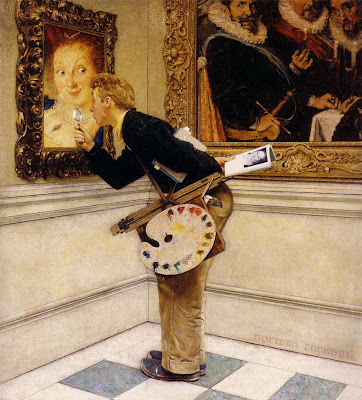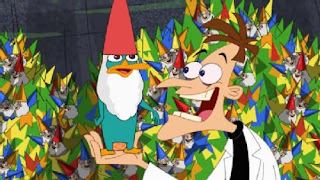With the release of
Michael
has come a storm of reviews, all this past week.
Michael garnered two five-star reviews, Airel took down one of
those plus a couple of one-star scorchers, and I’ve heard back from various
people and fans through unofficial channels on some of my other works, like
K: [phantasmagoria]. All of it has
combined into a critical wave that has given cause for pause. I took a walk
last night, reflecting on all of it.
I want to touch on the subject of Bad Reviews here. It’s
something all published authors have to deal with, and it’s something arguably
made worse by technology—anyone and everyone that wants to can leave poisonous
black barbs in the creative part of the author’s heart, and at a whim. I’ve
seen quite a lot of it. One of my favorites was a young lady’s one-star review
that must have been ten paragraphs long, poorly written natch, at the end of
which she basically said she was on her period in finals week so she probably
shouldn’t be writing reviews while she’s in a bad mood and isn’t it funny, lol!
Yeah well. Pardon me for not laughing. And perhaps I used the term “lady” too
loosely. I’ll leave that to you to judge.
I’m not bitching. That’s first. I’m not. I can take the bad
with the good. I have to. And while I wish there weren’t so much bad and so
much eagerness on the part of readers (or jealous authors?) to launch it at me
and others like me, I have a right to say something about those bad reviews.
For my fellow author, I have a responsibility to address the elephant in the
room, because nobody tells you how to deal with bad criticism when you’re
setting out on your journey. Too often, we authors set out on that journey with
rose-colored glasses anyway, only to have them ripped from our faces at various
points as cold reality shoulders its way into our lives.
Here’s the thing: I know I still have a lot to learn about
writing. Perhaps some of my one-star reviewers think I’m haughtily earning millions
as I scourge the market with tepid mass market drivel. “Get an editor!” they
say, not realizing that I devoted more than two years of my life to the
project, not realizing that me and my family made sacrifices to be able to
afford the $4k+ bill our incredible editor sent us. It was all worth it, by the
way. My critics may not realize that I sat at book signings skimming the print
version of the First Edition, finding errors, resolving to go back through and
find them and fix them for the Second Edition, which is already on sale.
Perhaps my more disaffected reviewers are just pissed that I’m able to make a living
as a writer, full time. Maybe they’re jealous, though I can’t imagine why.
Truthfully. I’ve seen my life. It’s not ready for prime time. I’m not going to
be featured on MTV Cribs anytime
soon.
Nevertheless, I’m in a bit of a storm here, and I’m trying
to figure out what makes the one-star critic tick. Let’s play devil’s advocate
for a sec: Usually, at least on Amazon, for some magical reason all the
five-star reviews are some kind of conspiracy against True Art. In other words,
they’re meaningless because obviously,
the author has a huge network of minions who do his bidding in regard to
reviews. This gang of indiscriminate five-star reviewing superfriends boasts
perfect Tom Selleck moustaches, you can bet, and they are well supplied with
three dollar bills by us rich author types, so that they can buy our eBooks
again and again and again, thus sending our crummy unworthy books up the
rankings undeservedly. Anyway, if all this were true, and the five-star review
should be ignored because it’s so obviously skewed, then all one-star reviews
ought to share the same fate. Hell, we learned about bell curves and means and
medians in junior high, for crying out loud. Why not apply it here.
There’s been a lot of assumption in our culture, too, about
what “Mainstream” is. On the conservative side, there has been name calling.
Conservatives label the traditional powers in the press the MSM, or Main Stream
Media, but that’s a misnomer. NBC and CNN aren’t mainstream. Hollywood tree
huggers aren’t mainstream. Eco-terrorists aren’t mainstream, and “artists” who
defecate into jars and then display it in galleries aren’t mainstream. What’s
mainstream in America is by and large a Biblical sense of morality, a Christian
outlook on how the world should work.
As that relates to our stories, that means we like the kinds
of books and movies where the bad guy loses and the good guy gets the girl. Why
do you think Princess Bride is a
classic? Because that’s what most people want. The best criticism I got about Airel this year was this: “A good light
read.” Why? Because it means I’m on target to reach the largest audience,
giving me the best chance for success and giving my art the widest
distribution. Some people resent that. Some people possess a morality that
goads them on to fight against the actual
mainstream; they resent most of us as backward, rednecks, gun-toters, religious
nut jobs, evil conservatives, or just plain old intolerant and uneducated
idiots. But I think it’s plain to see who’s really intolerant.
Their kind of morality demands that they fight in shrill
tones against any mention of God, any writing about Biblical scripture without
some kind of apology or prequalification. Their view of true art is exclusive,
it must be edgy, it must be “realistic” (i.e. hopeless and self-serving), it
must contain ever more gratuitous sex, foul language, denigration of women,
attacks on traditional values, and it must be a crutch to ever more extreme
splinter groups and radical factions of our society—in short, they don’t
believe all of us were created equal,
their morality insists that we be forced
to be equal. My writing is decidedly outside that mold.
I think that could be one reason why I must suffer the
attack of the one-star review from time to time.
But what else might have filled my one-star reviewers with
such angst, God love them? Allow me to posit another theory, based on how most
of these are composed, because probably about 80% of all one-star reviews are
filled with spelling and grammar errors. I submit to you the idea that they’re
not themselves authors, or even writers. How many critics of literature have
historically been writers? How many food critics are chefs? How many
motorjournalists, who eagerly criticize the iron they test drive, have ever
worked the manufacturing lines, have ever set foot in a design studio, are able
to engineer a car? I think it’s reasonable to say that it’s easy for a
connoisseur of food to criticize the chef, especially when he doesn’t know how
to cook the dish. I’m not trying to insult you, one-star critic, but I think
it’s a fair question to ask: have you ever written and published a book? If
not, do you think it’s intellectually honest for you to ask again and again,
“Howe does this carp git pulbished?” I think it’s a question that begs an
answer.
All my books have errors in them. I am trying to find them
all, but it’s difficult to ferret them out from the hundreds of thousands of
words in which they’re buried. For example, I just read Rainbow Six, by Tom Clancy this past week, and I found errors in it. I found turns
of phrase that I would never use. I came across bits of writing that struck me
as awkward, but I loved the book. I realized that it took Clancy probably a
couple of years to put that one together. Lots of people had their hands on it,
trying to make it all work right. It does. All that work, and I digested all
738 pages in a week, easily. It’s striking to the point of filling me with
reverence for the man. And though my tastes as a writer are different than his,
I won’t be blasting him with a one-star review on it. No way.
I have to admit something. If I’m hurt by one- and two-star
reviews on my own work, I should be more careful criticizing others’ artistic
expressions. If beauty is in the eye of the beholder, I should be more careful.
If I’m standing before a work that doesn’t speak to me, that doesn’t mean the
work is crap. It just means it doesn’t’ speak to me. I should move on. It may
not be a case of bad art. It may be a case of bad taste. Or at the least,
missed opportunity.

I humbly state here that I am not finished. I am still
learning how to write. I love that I have loyal fans, I love that there are
people out there who get what I’m trying to do, that I’m able to connect with
somebody through my art. I know I won’t be able to connect with everyone. My
art won’t speak to all to read it. Some won’t get it. Others will be repulsed
by it. The reaction will be different every time. But what momma taught you, or
should have taught you, about not saying anything if you can’t say something
nice, holds true here. If you’ve got a negative reaction to the work, don’t
hold the worker responsible for your reaction. A truly free society needs no
police.
In the end, I write because I choose to, and I write about
what I want to write about. And how. I take all the risks on publishing it,
too, knowing full well that I will bear the wounds of the critic’s arrows. I
could hide my work under a rock, but I don’t want to. I want to share it. I
have to give some weight to the criticism I receive, but I also know what I’m
trying to do here. If I were swayed by these breezes, I wouldn’t be worthy of
the mantle God gave me. There’s probably nothing worse than a man who abdicates
his life’s pursuits to the whims of popular sentiment. Bill Clinton was that
kind of president. I’m not that kind of man.
So, to my fans: fear not. I will continue to write what you
love. I will continue to learn my craft and hone excellence into all that I do.
Thank you for your undying support.
And to my critics: I humbly thank you for your input. You’re
entitled to your one-star opinions. All I ask of you is that you remember and
consider, as you criticize me, that I’m an artist who takes my work seriously,
who labors over it, who tries to make it as good as I can, not only for my fans,
but also for little ol’ me. As such, please consider how you’d feel if someone said
those things about your work. If you indeed have any work. If you do, please
feel free to send me the links to it, so I can read it in turn, and give you my
unsolicited opinion on it. I do believe that’s what would be considered “fair.”

















